Animated Spirituality
Japan's spiritual traditions are everywhere -- even in your favorite anime shows.
In August, I gave a talk at an anime convention. It was called Anime NYC 2025, and was held at the Javits Center in New York City. (If you missed it, there’s a link to the video at the end of this post.) Some two hundred companies put up over four hundred booths, and more than 148,000 people showed up! The Javits was absolutely packed. In an era of seemingly endless socio-political strife and technological unease, when nobody can seem to agree on anything, it was pretty inspiring to see so many people come together to celebrate, all linked by a shared passion for Japan’s pop cultural exports of anime, games, and manga.
I went the same convention last year, when “only” about 100,000 attended. Even then I found the diversity of the crowd striking, as I wrote in a newsletter at the time. There were all kinds of people: different ages, genders, and orientations; differently abled, different races, different nationalities. Almost all of them wore elaborate costumes, and everyone was having a great time under the same roof. I wore a yukata that time, so I managed to mingle with the crowds. My husband, on the other hand, was in street clothes, a “normal” shirt and slacks. And both of us laughed at how he stuck out like a sore thumb.
Something interesting happened this year. Although almost 50,000 more fans crammed into the Javits, there didn’t seem to be as many cosplayers as last time. Don’t get me wrong — there were lots of people in amazing outfits, many truly impressive. But this year, there were just as many wearing street clothes, enjoying the event, buying anime merch, playing new games, and attending panel discussions. My sense is that the crowd is getting even more diverse, in the sense that a lot more casual fans feel comfortable attending a big event like this, or even that anime isn’t particularly “special” or “unique” to a certain group of people anymore. Rather it’s become an unremarkable form of entertainment in everyday life.
The talk I gave centered on how one might use anime as a lens into Japanese spiritual traditions, in support of my upcoming book. The idea being that Japanese spirituality is always hiding in plain sight, never being pushy nor evangelical, just simply part of the fabric of life — which includes anime. I called it “Jujutsu Whatsit?,” echoing the name of a hugely popular show with supernatural themes, Jujutsu Kaisen. (Incidentally, it’s interesting that they didn’t even bother localizing that title — another example of how comfortable young people abroad are with Japanese culture.)
I started with the big picture, the yaoyorozu no kami, or “eight million spiritual beings” of traditional Japanese cosmology. In this context, “eight million” isn't an exact number; it’s an idiom that simply means “many.” The phrase is key in Shinto, but it’s actually much bigger than that. I would go so far as to say it is the foundation of my country’s spiritual culture, of our entire worldview. Japan’s traditional belief system defines itself in additive terms rather than subtractive, by embracing rather than drawing hard and fast lines between itself and other theological (or even non-religious) systems. This “radically inclusive” mindset means there’s always room for more.
After familiarizing the audience with the symbols that define Japan’s literal spiritual landscape, such as the tori’i gates of Shinto shrines, I used scenes from popular shows, including not only Jujutsu Kaisen, but Demon Slayer, DanDaDan, Spirited Away, Totoro, and even Gundam, to help fans better understand the cultural backdrops to some of their favorite series and films.
I was not sure how this would go over, to be honest. I know from personal experience that America is a place riven by much disagreement about faiths (and/or lack thereof). So I was shocked, very pleasantly, eternally gratefully, to see that nearly 400 people packed in to listen, standing room only. It was a profoundly memorable and moving thing.
You don’t have to be some kind of media expert to know that there has been an explosion of interest in Japanese pop culture abroad. But I have started thinking more and more that the meaning of anime and manga have begun to shift. They are no longer just simple products to consume, but windows of opportunity that stimulate consumers, or a certain subset of them, into deep dives to further understand Japanese culture and values. And the sheer number of folks who showed up, not to mention asked some really interesting questions, seems to bear that out.
I suspect the organizers felt as nervous about the topic as I initially did, as the room was small and tucked away in a back corner of the sprawling complex. When I went in it was empty and I wondered if I’d be talking to a room. But people filed in, one after the other, filling seats and, once those filled, lining up against the walls. I couldn’t believe it. And during the talk, nervous now for a totally different (and very welcome) reason of suddenly having all these people listening, I could see that the doors had been propped open. Later I learned that it for even more people who couldn’t get in, watching from outside.
So the talk was more than successful. It felt like the start of something new, something bigger. As a writer, I of course want my book to sell. But even more, I want to reach people, to hopefully change their thinking, even to help them heal.
We find ourselves in a time of relentless unease and profound dislocation. I know how much everyone is struggling under political, social, economic, and even environmental stresses, because I feel it myself, see it all around me. It’s easy to feel overwhelmed, even hopeless. I want to start a conversation that gives people new tools for looking at the world, to help them tap into the spirituality that is hiding right there in modern life, not only in Japan, but everywhere and anywhere.
I used anime to start, because it’s so popular (and, I mean, because it was an anime convention, after all.) But I sense that the conversation is only beginning. I can’t tell you how excited I am to continue it, to build on it, to connect. And I’ll always be grateful to AnimeNYC, because I’ll always feel like it started there.
I’ve put a recording of the panel up on Matt’s YouTube channel. Please feel free to check it out! And I look forward to keeping the conversation going.
I wrote a book about my experiences and adventures exploring Japan’s spirituality. It’s called Eight Million Ways to Happiness, and is due out in December of 2025. You can pre-order it here!


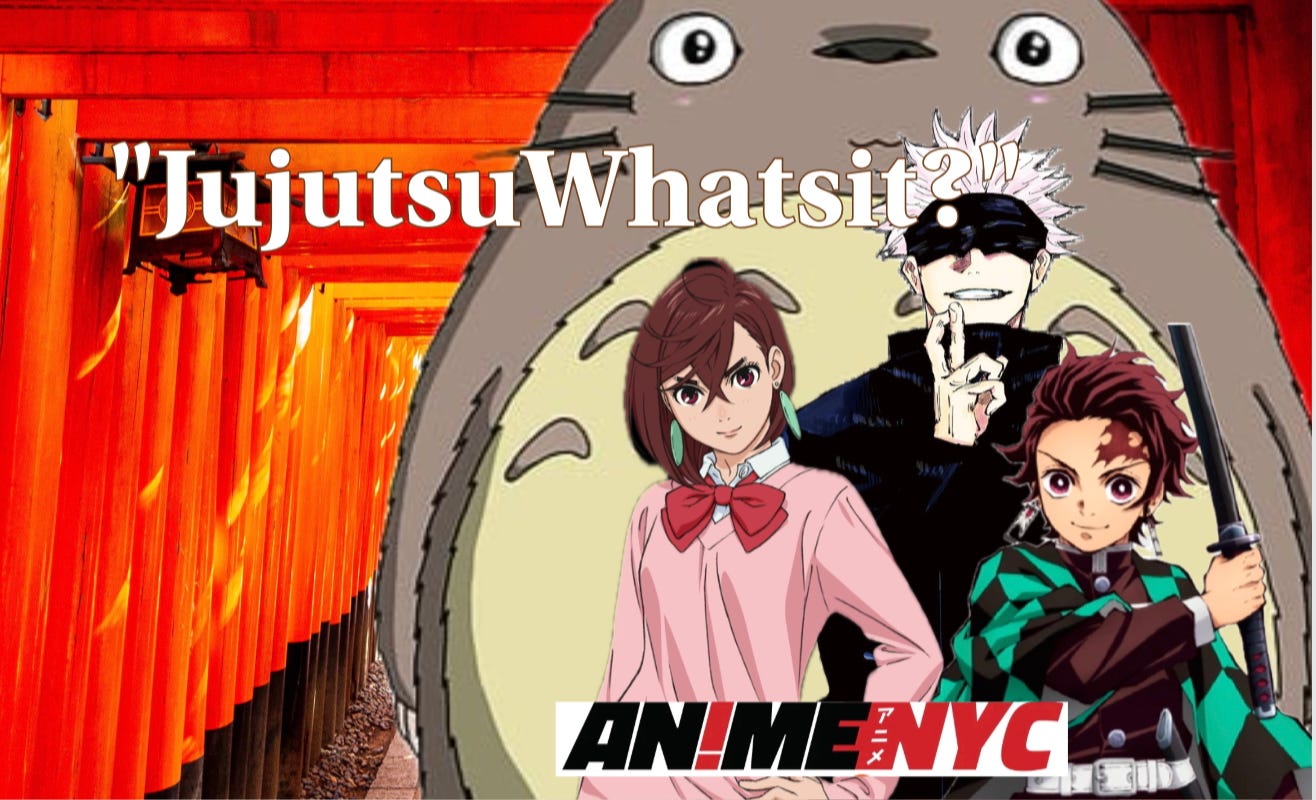
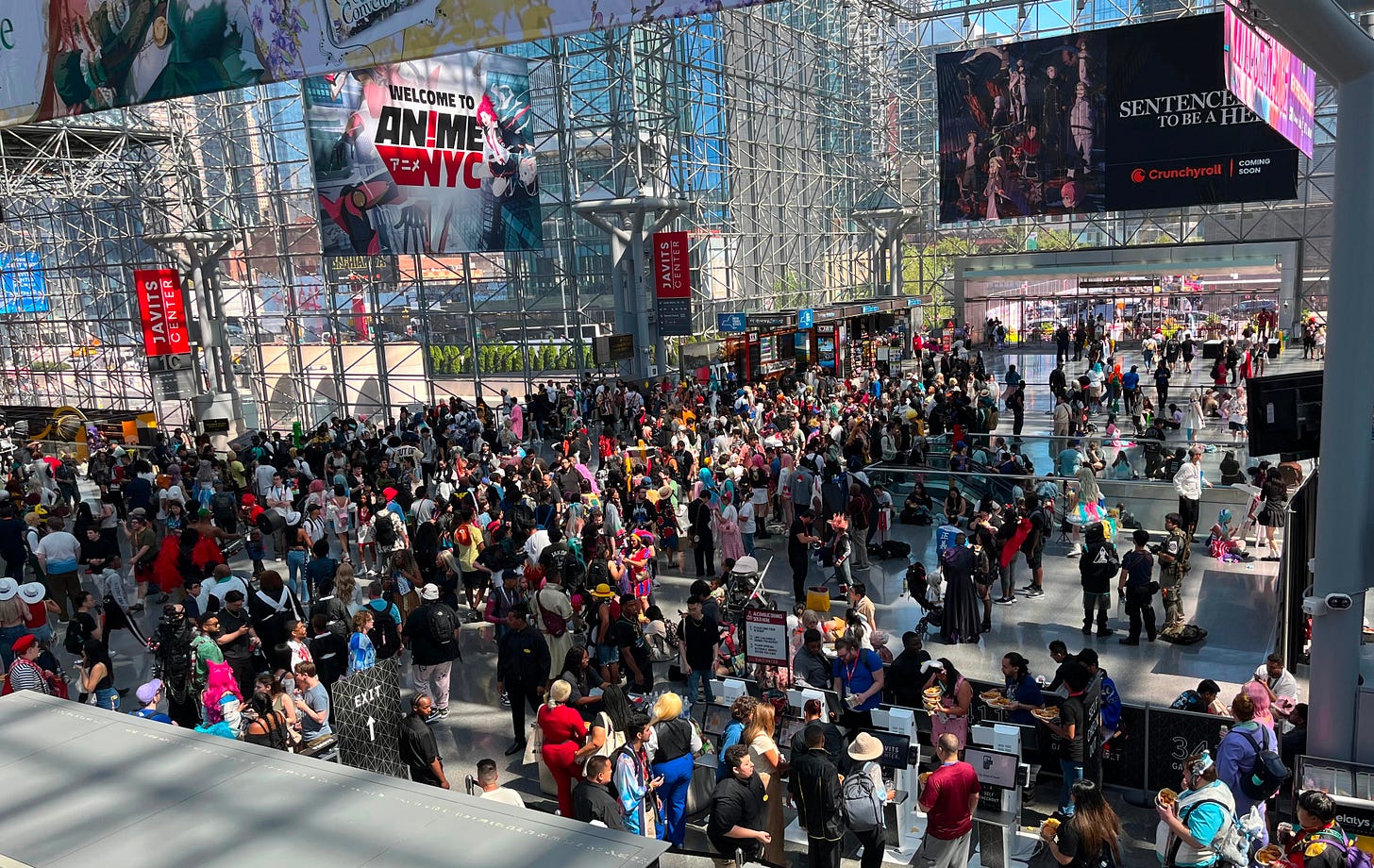
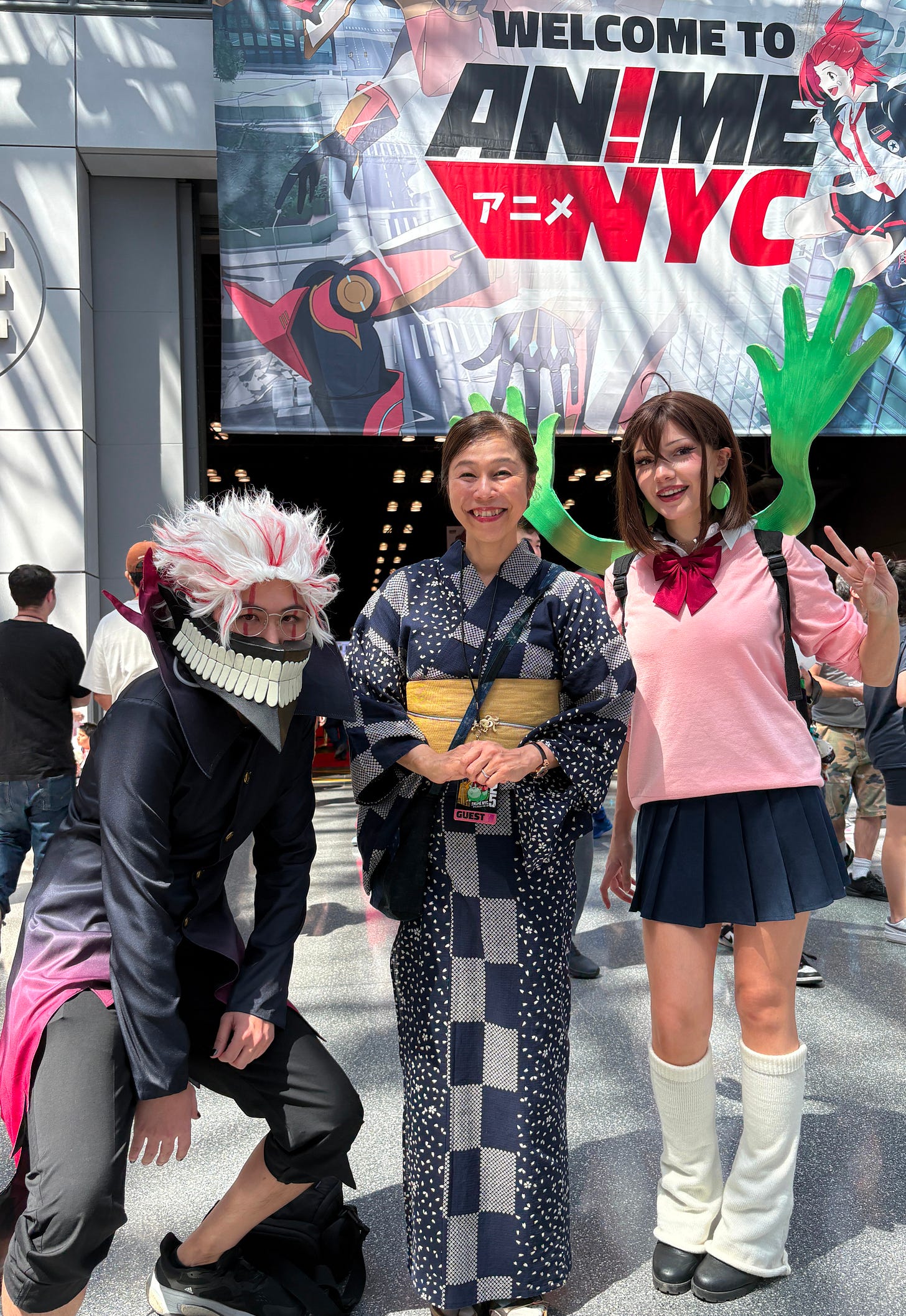
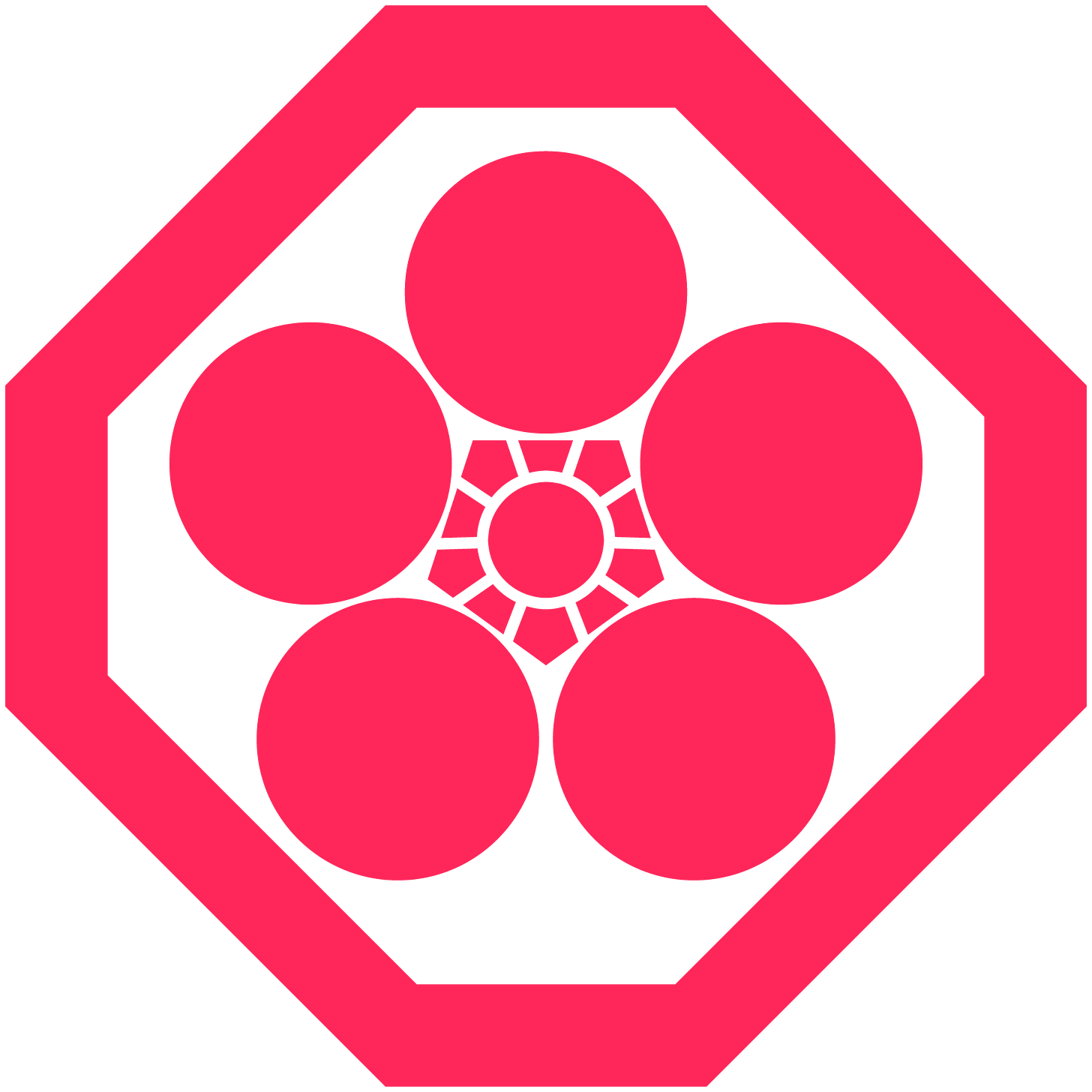
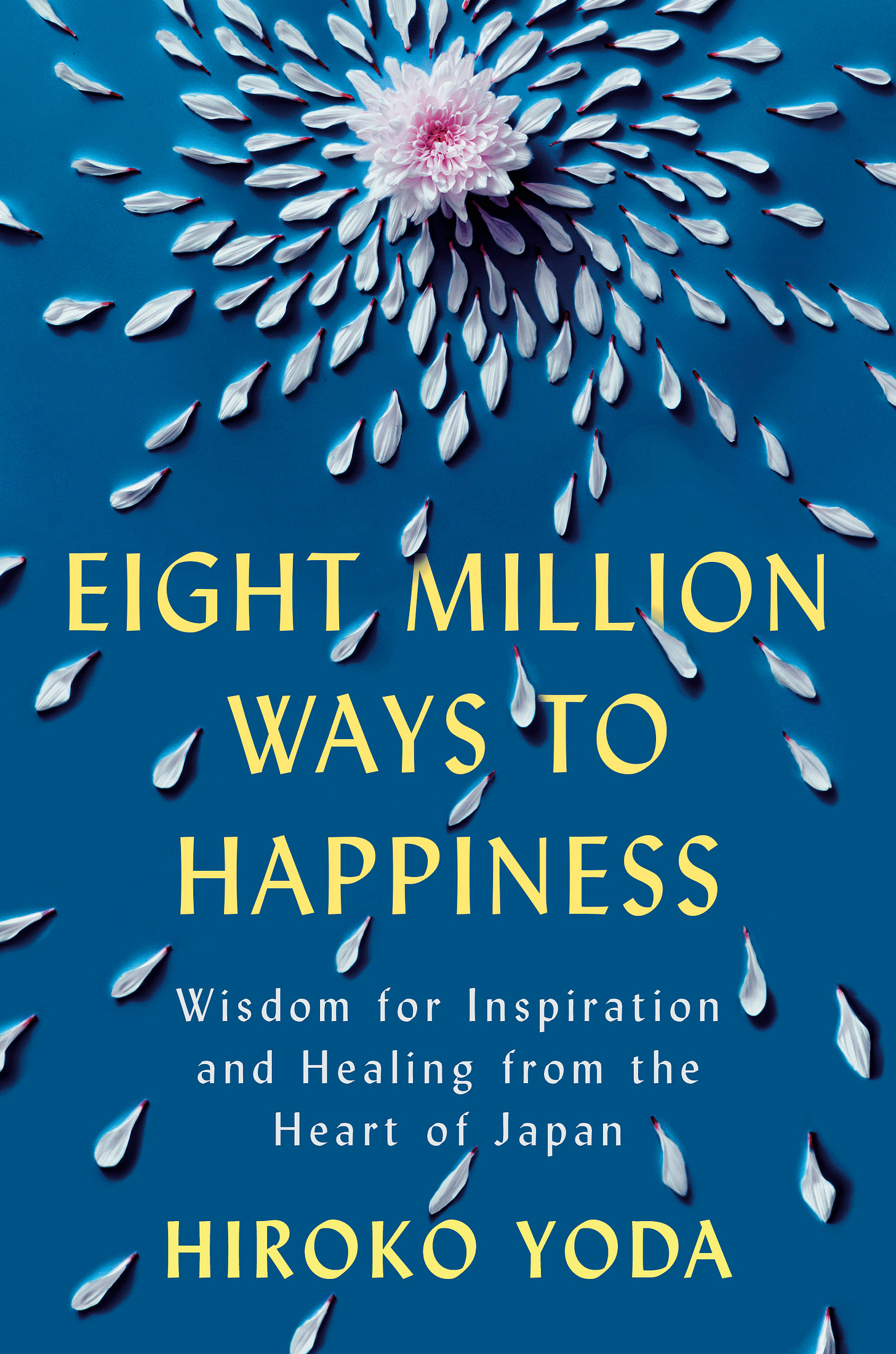
I'm so glad that your talk went well. I am very excited now to listen to the video and to read your book when it comes out. I'm so fascinated in these topics so I am very grateful for your willingness to share your wisdom. Thank you.
Well done, Hiroko!🤩